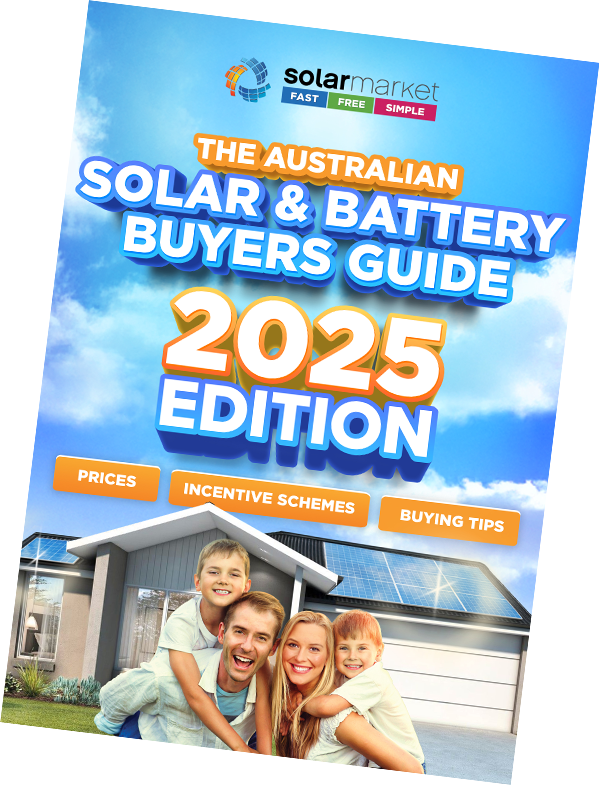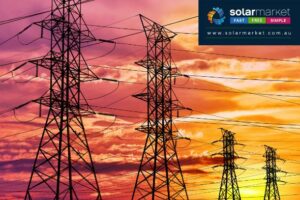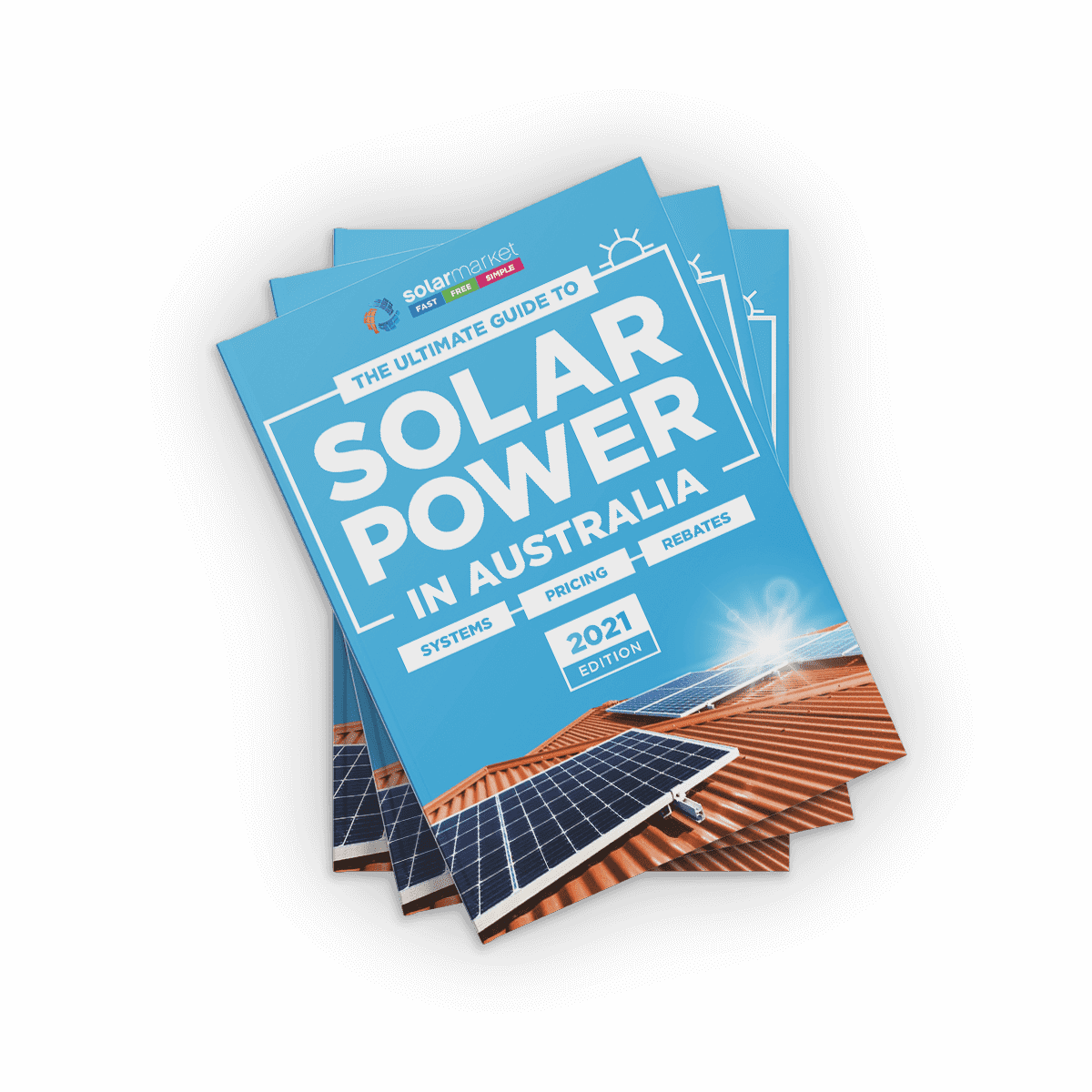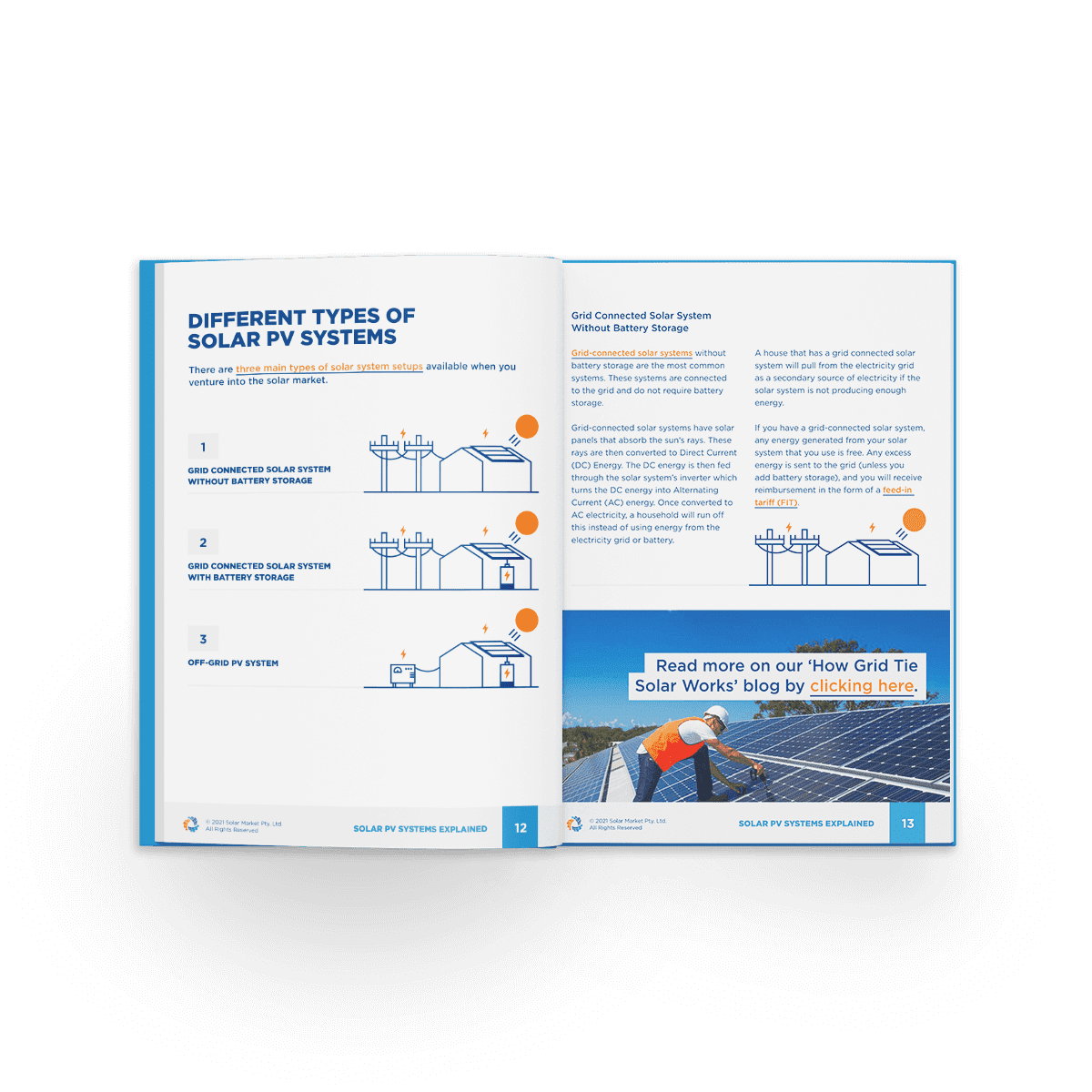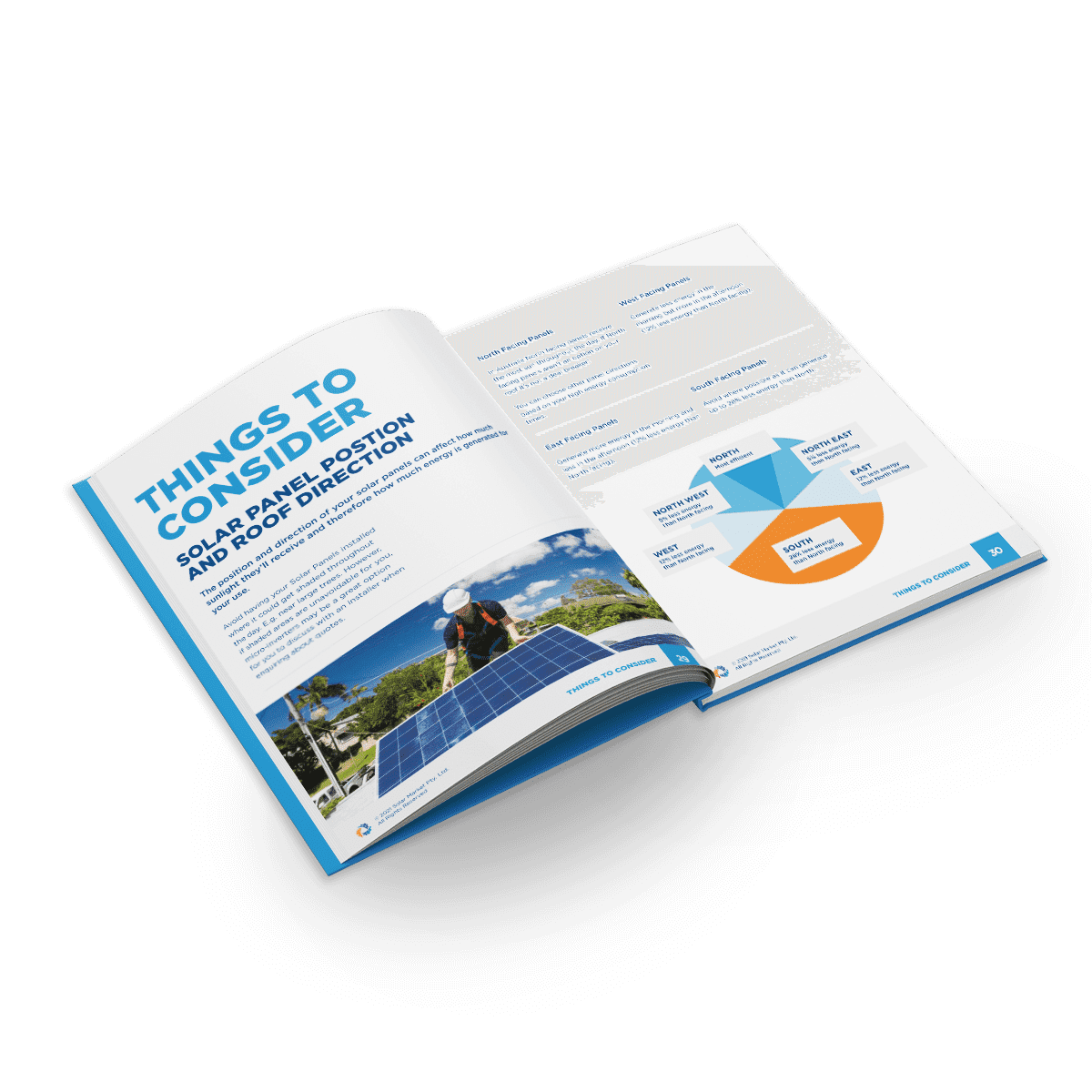As solar systems continue to drop in price and state Governments offer more incentives to assist in the purchasing of systems, we’re seeing a high increase of solar panelled roofs across Australia. But when selecting panels for your system and roof how do you know which brands and models are going to live up to the 20-25-year lifespan you’ve been promised when investing in a solar system?
Below we’ll discuss a few factors to keep in mind when shopping for solar panels, but first, let’s refresh on the purpose and function of solar panels.
What Are Solar Panels
Solar panels are typically placed on a roof to receive sunlight. The panels generate this sunlight into Direct Current (DC) electricity which is then fed into the solar system’s inverter where it’s converted to Alternating Current (AC) electricity. AC is the type of electricity our household appliances run off.
The number of panels a home needs may change depending on your energy needs. You can also add extra panels in the future (depending on your inverter size), should you require to generate more energy.
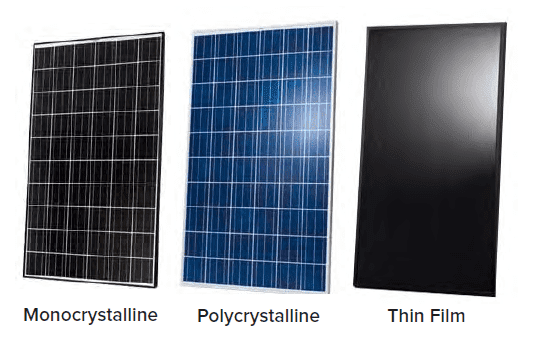
What Are The Different Type of Panels Available?
The 3 different solar panel types you’ll hear of when shopping around are Monocrystalline, Polycrystalline and Thin Film.
Monocrystalline and Polycrystalline are the two common types of solar panels and are both highly reliable and efficient. There are debates amongst the industry claiming that Monocrystalline panels are better than Polycrystalline panels and vice versa however, you’ll find this will vary and be dependent on the brand and model of the panels.
Thin Film has a reputation for being the ‘worst’ of the solar panel technologies due to its lower power efficiency. However, this only means they require more roof space for the same amount of power that Monocrystalline and Polycrystalline options would need.
Brands and prices will vary for each solar panel option, so it’s best to discuss with an installer what type may be best suited to your roof and then review the following factors;
Quality/Value
The best way to determine the quality of any product is hearing the experience of past and current customers and their feedback on the product. You can do this by searching online on forums and websites like; Product Review, Facebook, Google, TrustPilot, Clean Energy Reviews.
After determining which are your best quality options you can price compare to determine which is going to be the best overall value to you. If you can’t find any information on a brand or product, then its performance isn’t well known. In that case, it may be best to steer clear.
Warranty
Make sure they come with a warranty! You’ll want a warranty where the company will take on the entire cost for removing, transporting, replacing and reinstalling any defective panels within a defined amount of time. Companies that aren’t willing to make this commitment probably aren’t confident enough in their own product, so you shouldn’t be either.
Presence in Australia
Ideally, you want a representative or a contact to be based in Australia, so should you have any issues or questions they are easily contactable and there is a quick turnaround.
Time to start comparing?
Receive 3 obligation free quotes from local solar providers


